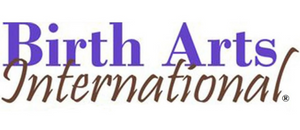Communication Skills for Doulas
Communication skills are essential for doulas, as they support expectant parents before, during, and after childbirth. Doulas must establish connections, provide emotional and informational support, and ensure their clients feel heard and understood.
Here are some basic communication skills for doulas:
Active Listening
Listen to your clients to understand their concerns, fears, and choices. This involves giving your full attention, maintaining eye contact, and using non-verbal cues to show your attention.
Empathy
Show natural empathy towards your clients’ experiences and emotions. This involves recognizing their feelings and validating their concerns.
Non-Judgmental Attitude
Create a safe and judgment-free space for your clients to express their thoughts and feelings. Moreover, you will want to avoid imposing your own beliefs or opinions.
Effective Questioning
Ask open-ended questions to encourage your clients to share more about their needs and desires. In addition, this helps you better understand their expectations and experiences.
Clear Communication
Express yourself clearly and concisely. Doulas should be able to share information, options, and instructions straightforwardly, especially when discussing birth plans and medical procedures.
Supportive Language
Use words and phrases that convey support and encouragement. Avoid negative language. Encourage your clients to stay positive and confident during the birthing process.
Boundary Setting
Clearly communicate your role and scope of practice as a doula. Discuss your limits and the services you can provide. This helps manage expectations and prevent misunderstandings.
Cultural Sensitivity
Be aware of and respectful of your client’s cultural and religious backgrounds. For instance, this includes understanding specific cultural traditions and preferences related to childbirth.
Collective Approach
Work collaboratively with healthcare providers, doctors, midwives, and nurses. Effective communication with the medical team is essential to ensure your client’s wishes are respected, and everyone is on the same page about the birth plan.
Conflict Resolution
Doulas may need to mediate conflicts or disagreements between the expectant parents and medical staff. In addition, having conflict resolution skills can help in such situations.
Emotional Support
Offer emotional support through words, touch, and reassurance. For instance, you can be a calming presence for your clients during labor and childbirth.
Information Sharing
Provide evidence-based information to help clients make informed decisions about their childbirth experience. Ensure that they are aware of their options and potential outcomes.
Flexibility
Be adaptable and responsive to your client’s changing needs and wishes during labor and childbirth. Be prepared to adjust your support as the situation evolves.
Postpartum Support
Continue communicating and providing support postpartum, assisting with breastfeeding, emotional well-being, and newborn care.
Documentation
Maintain clear and accurate records of your interactions and the support you provided during labor and childbirth. This can be important for both the client and the doula.
Effective communication is at the core of a doula’s role, and mastering these skills can help ensure a positive and supportive experience for expectant parents during one of the most significant events in their lives. In conclusion you will find that good communication makes the job so much easier.
Become a Doula Today at Birth Arts International
Do you have a passion for supporting families through childbirth and postpartum? If so, becoming a doula may be the perfect career for you.
Why Become a Doula?
There are many reasons why becoming a doula is a rewarding career choice. Here are just a few:
- You will have the opportunity to make a real difference in the lives of families.
- You can use your skills and compassion to help people through one of the most important life experiences.
- You will have a flexible work schedule and be able to set your own hours.
- You will be part of a supportive community of doulas passionate about helping families.

